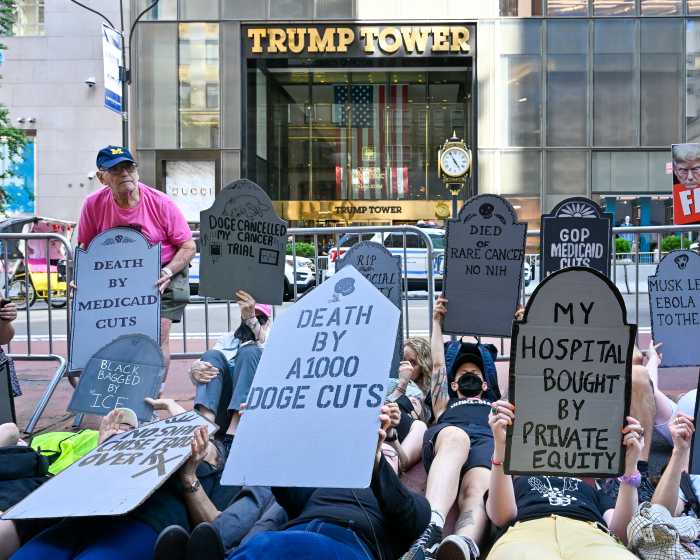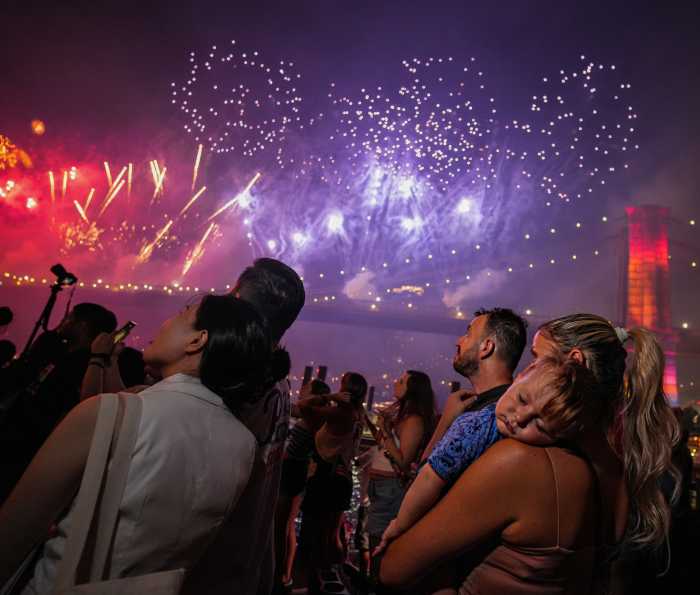
The developer selected to build a 21-floor tech hub in Union Square spent hundreds of thousands of dollars lobbying city officials for zoning changes that allowed it to add seven stories to the project.
The Greenwich Village Society for Historic Preservation, which has long opposed the plan, said the pricey promotion was needed because the bulk of the benefits touted by the government were included in the developer’s initial, 14-story proposal, which did not rely on zoning changes.
“They spent an extraordinary amount of money on lobbying for the project and that’s because there was so much money to be made by the developer,” said Andrew Berman, executive director of the society, which unsuccessfully sought a handful of zoning protections in surrounding communities to limit commercial growth it feared could be exacerbated by the project. “You’re talking about five times as much for-profit, commercial space as the additional ‘public benefits,’ some of which are questionable as true, public benefits.”
Through a Freedom of Information Law request, the society received a copy of the proposal initially submitted by RAL Development Services LLC. In that document, RAL outlines two potential schemes for the 124 E. 14th St. site — both of which would only require a less onerous signoff from the Board of Standards and Appeals.
Under both mock-ups, RAL would have included 111,742 square feet to be split between Civic Hall, a nonprofit focused on using tech for good, and what’s known as step-up office space, which offers younger companies more flexible leases and lower deposits, according to the proposal. Space for workforce development activities would be available in one of the visions, the proposal said.
Nonetheless, the city opted to upzone the site to allow for about 16,500 more square feet between Civic Hall, step-up space and the workforce development hub, and to add 84,825 square feet of traditional office space, according to figures provided by the city’s Economic Development Corporation.
The society argues step-up space is not a developer concession because occupants can be charged market rate rents, although their leases may be relatively flexible. Even if the space is assumed to be a public benefit, the society said having to accept 84,825 square feet of market-rate office space for an additional 16,500 square feet of community-driven space is a poor bargain.
In all, RAL has spent about $292,250 since 2017 paying Herrick, Feinstein LLP and James F. Capalino & Associates to lobby local elected officials, city planners and EDC employees, according to disclosure reports. (The reports for James F. Capalino & Associates also covered a second project RAL has been pursuing in Brooklyn, but did not specify how much was spent on each effort.)
Neither firm responded to a request for comment. RAL, however, said the society’s analysis inflated how much it spent on lobbying because Herrick, Feinstein LLP was hired to assist the developer with the city’s development review process, and not to arrange meetings with politicians.
“New York State law requires all land use lawyers to register as lobbyists. This does not mean that all land use lawyers are engaged in ‘lobbying’ in the sense of arranging discussions with elected officials,” Josh Wein, RAL’s financial director, said in a statement. “We incurred ordinary course professional fees for a successful application with broad public support.”
Several organizations voiced support for the tech training center plan approved by the City Council earlier this month, including Alysha Lewis-Coleman, who chairs the local community board; the area’s councilwoman, Carlina Rivera; and Manhattan Borough President Gale Brewer.
The EDC, which steered the project, said its request for development proposals noted a rezoning may be appropriate. The corporation said it determined that was a prudent route because the initial proposals could not simultaneously provide sufficient space for all three sought-after benefits: job training, Civic Hall and step up space. EDC also said incorporating market-rate office space would help companies find a pool of trained workers.
“NYCEDC encouraged zoning changes that would deliver deeper community benefits and create more good-paying jobs in Union Square that could not be accomplished under existing zoning,” EDC spokesman Ryan Birchmeier said in a statement.






































